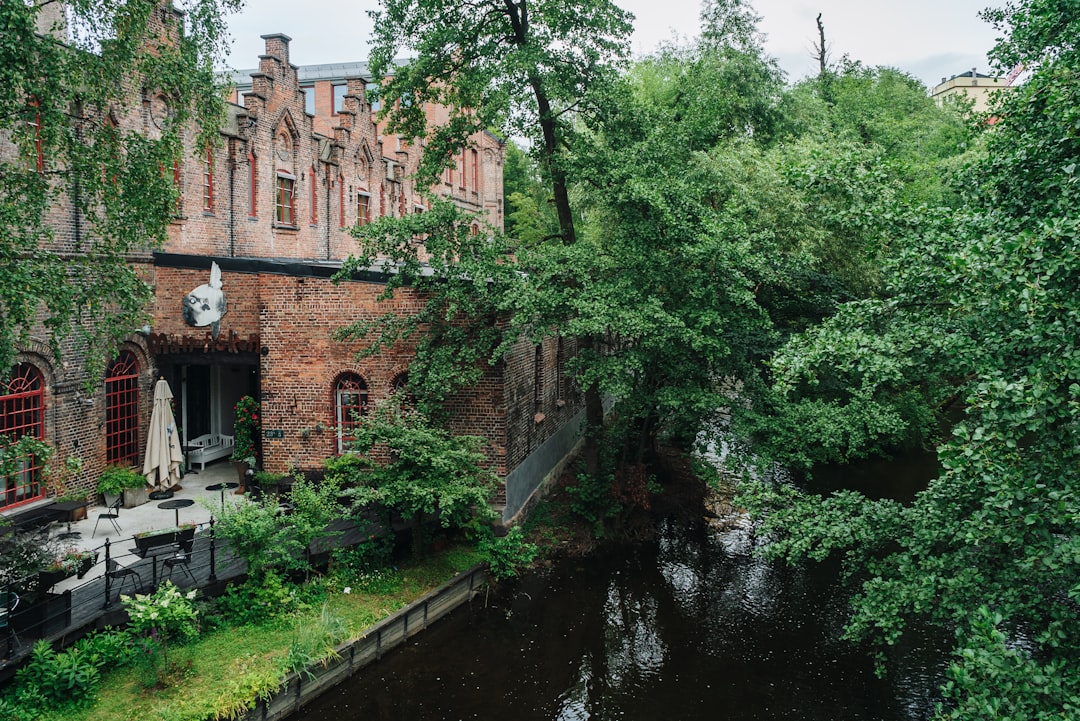“Takk for maten” is a phrase that translates to “Thank you for the food” in English. This simple yet profound expression encapsulates a deep-seated appreciation for the meal one has just enjoyed. In Norway, where culinary traditions are rich and varied, saying “Takk for maten” is not merely a polite gesture; it is an integral part of the dining experience.
It signifies respect for the effort that has gone into preparing the meal, acknowledging the time and care taken by the host or chef. The phrase is often uttered at the end of a meal, serving as a bridge between the act of eating and the social interactions that follow. It reflects a cultural ethos that values gratitude and recognition, reinforcing the bonds between individuals who share a meal together.
In a country where communal dining is cherished, “Takk for maten” serves as a reminder of the importance of connection and appreciation in social gatherings. Schedule a one-on-one consultation with our relocation specialists to simplify your move to Norway. https://norwayrelocation.no/one-hour-strategy-session/
Summary
- “Takk for maten” translates to “Thank you for the food” in English.
- Saying “Takk for maten” is a deeply ingrained cultural tradition in Norway, signifying appreciation and respect for the meal and the host.
- In Norwegian culture, it is customary to express gratitude after a meal by saying “Takk for maten” and engaging in polite conversation with the host and other guests.
- The correct pronunciation of “Takk for maten” is “tahk foor mah-ten” with the emphasis on the first syllable of each word.
- Different dialects and regions in Norway may have variations of “Takk for maten,” such as “Takk for mat” or “Takk for mat og drikke,” reflecting the diversity of the country.
The cultural significance of saying “Takk for maten” in Norway
In Norwegian culture, expressing gratitude through “Takk for maten” goes beyond mere politeness; it embodies a sense of community and shared experience. This phrase is often accompanied by a warm smile or a nod, reinforcing the sentiment behind the words. It is customary to say this phrase not only in private homes but also in restaurants and public gatherings, highlighting its universal relevance across various dining contexts.
The act of saying “Takk for maten” fosters an atmosphere of warmth and camaraderie among diners. It encourages conversation and connection, allowing individuals to reflect on the meal they have just shared. In many ways, this expression serves as a social lubricant, breaking down barriers and inviting further interaction.
The cultural significance of this phrase lies in its ability to create a sense of belonging and appreciation within the Norwegian community.
The etiquette of expressing gratitude after a meal in Norwegian culture

In Norway, etiquette surrounding mealtime extends beyond simply enjoying the food; it encompasses the manner in which one expresses gratitude. Saying “Takk for maten” is expected after every meal, regardless of its setting. This practice underscores the importance of acknowledging the efforts of those who have prepared the food, whether it be family members, friends, or restaurant staff.
When dining in a more formal setting, it is customary to wait until everyone has finished their meal before expressing gratitude. This practice reflects consideration for others and ensures that the moment of appreciation is shared collectively. Additionally, it is common to make eye contact with the host while saying “Takk for maten,” further emphasising the personal connection inherent in this expression of thanks.
Such etiquette not only reinforces social bonds but also cultivates an atmosphere of mutual respect among diners.
How to pronounce “Takk for maten” correctly
Pronouncing “Takk for maten” correctly can be a challenge for non-native speakers, but with a little practice, it can be mastered. The phrase is pronounced as “Tahk for mah-ten.” The first word, “Takk,” rhymes with “back,” while the second word, “for,” is pronounced as it appears in English. The final word, “maten,” has a soft ‘a’ sound similar to ‘ah’ and ends with a gentle ‘ten.’ To ensure clarity and authenticity when using this phrase, it is beneficial to listen to native speakers or utilise language learning resources that provide audio examples.
Practising in front of a mirror can also help with pronunciation and intonation. By mastering this phrase, you not only show respect for Norwegian culture but also enhance your ability to connect with locals during your dining experiences.
Variations of “Takk for maten” in different dialects and regions of Norway
Norway is known for its rich tapestry of dialects, each with unique characteristics that can influence how phrases are spoken. While “Takk for maten” is widely understood across the country, variations may exist depending on regional accents and local customs. For instance, in some areas, you might hear slight alterations in pronunciation or even different expressions altogether that convey similar sentiments.
In Northern Norway, for example, you may encounter dialects that add a melodic twist to the phrase, making it sound more lyrical. Conversely, in urban areas like Oslo, the pronunciation may be more straightforward and less embellished. Regardless of these variations, the underlying message remains consistent: an expression of gratitude that resonates deeply within Norwegian culture.
The role of “Takk for maten” in fostering a sense of community and togetherness

The phrase “Takk for maten” plays a pivotal role in fostering community and togetherness among Norwegians. When shared at the end of a meal, it acts as a catalyst for conversation and connection among diners. This simple act of gratitude encourages individuals to reflect on their shared experience and engage in meaningful dialogue about the food they have enjoyed.
Moreover, saying “Takk for maten” reinforces social bonds by creating an atmosphere of appreciation and respect. It invites guests to share their thoughts on the meal, leading to discussions about culinary traditions or personal anecdotes related to food. In this way, the phrase transcends its literal meaning and becomes a vehicle for building relationships and strengthening community ties.
Other ways to show appreciation for a meal in Norwegian culture
While “Takk for maten” is the most common expression of gratitude after a meal, there are other ways to convey appreciation within Norwegian culture. Complimenting specific dishes or ingredients can be particularly meaningful; expressing admiration for a well-cooked fish or homemade dessert can enhance the host’s sense of pride in their culinary skills. Additionally, offering to help with post-meal tasks such as clearing the table or washing dishes can also demonstrate gratitude.
This gesture not only shows appreciation but also reinforces the communal spirit that characterises Norwegian dining customs. By actively participating in the meal’s conclusion, guests contribute to an atmosphere of collaboration and shared responsibility.
The history and origins of the phrase “Takk for maten”
The origins of “Takk for maten” can be traced back through centuries of Norwegian culinary tradition. As communal dining has long been an integral part of Norwegian culture, expressions of gratitude have evolved alongside these practices. Historically, meals were often shared among family members and close friends, making it essential to acknowledge the efforts involved in preparing food.
The phrase itself reflects Norway’s agrarian roots, where meals were often simple yet hearty, prepared with locally sourced ingredients. As such, saying “Takk for maten” became not only an expression of thanks but also a recognition of the hard work that went into cultivating and preparing food. Over time, this tradition has been passed down through generations, solidifying its place in contemporary Norwegian dining customs.
The importance of reciprocating hospitality in Norwegian dining customs
Reciprocating hospitality is a fundamental aspect of Norwegian dining customs that complements the practice of saying “Takk for maten.” When invited to someone’s home for a meal, it is customary to return the favour by hosting them at your own home at a later date. This reciprocal nature fosters strong relationships and reinforces social bonds within communities. Moreover, bringing a small gift or offering to contribute to the meal can also be seen as an expression of gratitude and respect towards your host.
Whether it’s a bottle of wine or homemade treats, these gestures signify appreciation for the invitation and enhance the overall dining experience. By embracing this reciprocal hospitality, individuals contribute to a culture that values connection and generosity.
How “Takk for maten” reflects Norwegian values of gratitude and humility
At its core, “Takk for maten” embodies essential Norwegian values such as gratitude and humility. In a society that places great importance on egalitarianism and modesty, expressing thanks after a meal aligns perfectly with these principles. It serves as a reminder that no matter one’s status or achievements, acknowledging others’ efforts is vital in maintaining harmony within social interactions.
This emphasis on humility is evident in how Norwegians approach dining experiences; they often prefer simple yet wholesome meals over extravagant feasts. By saying “Takk for maten,” individuals demonstrate their appreciation not only for the food but also for the shared experience that brings people together. In this way, the phrase encapsulates the essence of Norwegian culture—valuing connection over ostentation.
Tips for incorporating “Takk for maten” into your own dining experiences in Norway
If you find yourself dining in Norway—whether at a local’s home or in a restaurant—incorporating “Takk for maten” into your experience can enhance your interactions with locals significantly. Begin by practising your pronunciation before your trip; this will help you feel more confident when expressing gratitude after meals. When dining with friends or family, make it a point to say “Takk for maten” at the end of your meal, ensuring you maintain eye contact with your host as you do so.
If you’re at a restaurant, don’t hesitate to express your appreciation to the staff as well; they will likely appreciate your effort to engage with Norwegian customs. Additionally, consider learning about traditional Norwegian dishes so you can compliment specific aspects of your meal when saying “Takk for maten.” This not only shows your appreciation but also demonstrates your interest in local culture and cuisine. In conclusion, understanding and embracing phrases like “Takk for maten” can significantly enrich your experience while living or travelling in Norway.
The Norway Relocation Group can assist you in navigating these cultural nuances as you settle into your new life in this beautiful country. They offer invaluable resources and support tailored to expatriates looking to integrate into Norwegian society seamlessly. As you embark on this journey, consider enrolling in Norwegian courses at the NLS Norwegian Language School in Oslo.
These courses will not only help you master essential phrases like “Takk for maten,” but they will also deepen your understanding of Norwegian culture and enhance your ability to connect with locals on a more meaningful level. Embracing language learning will undoubtedly enrich your experience as you explore all that Norway has to offer.
Register for a Norwegian class at the NLS Norwegian Language School now!

